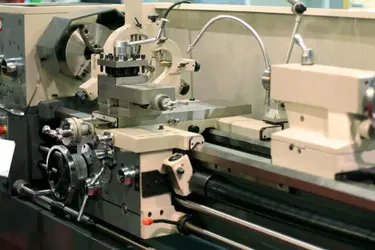Why Lathe is Called the Mother of All Machines?
When it comes to the world of machining and manufacturing, one machine stands out as the cornerstone of the industry: the lathe. Often referred to as the "Mother of All Machines," the lathe has played a pivotal role in the development and evolution of manufacturing. But why exactly is it given such a distinguished title? In this blog, we'll delve into the history, functions, and significance of the lathe, exploring why it is considered the foundation of modern machinery.
The Historical Significance of the Lathe
The lathe's origins date back thousands of years, with the earliest versions appearing in ancient Egypt around 1300 BC. These early lathes were rudimentary, manually operated devices used for shaping wood. Over time, the lathe evolved, becoming more sophisticated and capable of working with various materials, including metal and plastic.
During the Industrial Revolution, the lathe underwent significant advancements, thanks to the contributions of inventors like Henry Maudslay and David Wilkinson. Maudslay's invention of the screw-cutting lathe in the early 19th century revolutionized manufacturing, allowing for the mass production of standardized screws and bolts. This innovation paved the way for the development of other machines and tools, earning the lathe its title as the "Mother of All Machines."
The Versatility of the Lathe
One of the primary reasons the lathe is considered the mother of all machines is its incredible versatility. A lathe can perform a wide range of operations, including turning, facing, threading, drilling, boring, and knurling. This versatility makes it an indispensable tool in various industries, from automotive and aerospace to woodworking and metalworking.
Lathes come in different types, each designed for specific tasks. The most common types include:
Engine Lathe: Known for its robustness and versatility, the engine lathe is widely used in workshops and manufacturing plants. It can handle a variety of materials and is suitable for both small and large-scale production.
Turret Lathe: Equipped with a turret that holds multiple tools, this lathe allows for rapid tool changes, making it ideal for high-volume production and complex machining operations.
CNC Lathe: Computer Numerical Control (CNC) lathes are highly automated and precise. They are programmed to perform complex tasks with minimal human intervention, making them essential in modern manufacturing.
Wood Lathe: Specifically designed for woodworking, this type of lathe is used to create intricate designs and shapes in wood.
The Lathe's Role in Modern Manufacturing
In modern manufacturing, the lathe continues to play a crucial role. Its ability to produce high-precision components with tight tolerances makes it indispensable in industries where accuracy is paramount. For example, in the aerospace industry, lathe-machined parts must meet stringent specifications to ensure the safety and performance of aircraft.
The automotive industry also relies heavily on lathes for the production of engine components, transmission parts, and other critical elements. The precision and efficiency of CNC lathes, in particular, have revolutionized the way these components are manufactured, leading to improved quality and reduced production costs.
The Lathe as a Foundation for Other Machines
The lathe's significance extends beyond its direct applications in manufacturing. It has served as the foundation for the development of many other machines and tools. For instance, the principles of operation and design used in lathes have influenced the creation of milling machines, drilling machines, and grinders.
The concept of rotating a workpiece against a cutting tool, which is fundamental to lathe operation, is also applied in various other machining processes. This foundational principle has made the lathe a starting point for innovation and advancement in the field of manufacturing technology.
The Educational Value of Lathes
Lathes are not only crucial in industrial settings but also play a significant role in education and training. Many vocational schools and technical colleges use lathes to teach students the fundamentals of machining. Learning to operate a lathe provides students with a solid understanding of machining principles, which can be applied to other machines and processes.
The hands-on experience gained from working with a lathe helps students develop practical skills and problem-solving abilities. As they become proficient in lathe operation, they gain confidence in their machining capabilities, paving the way for successful careers in manufacturing and engineering.
Innovations and Future of Lathes
The evolution of lathes has not stopped. Continuous innovations are being made to enhance their performance, precision, and efficiency. Modern CNC lathes are equipped with advanced features such as multi-axis machining, automated tool changers, and real-time monitoring systems. These advancements enable manufacturers to produce complex components with exceptional accuracy and speed.
Looking ahead, the future of lathes is likely to be shaped by developments in automation, artificial intelligence, and additive manufacturing. The integration of AI in CNC lathes could lead to smarter machines that can optimize machining processes, reduce waste, and predict maintenance needs. Additionally, the combination of subtractive and additive manufacturing techniques may open new possibilities for producing hybrid components with intricate geometries.
Conclusion
The lathe's title as the "Mother of All Machines" is well-deserved. Its historical significance, versatility, and foundational role in the development of other machines underscore its importance in the world of manufacturing. From its humble beginnings in ancient Egypt to its pivotal role in the Industrial Revolution and its continued relevance in modern manufacturing, the lathe has proven to be an indispensable tool. As technology advances, the lathe will undoubtedly continue to evolve, driving innovation and shaping the future of machining.



